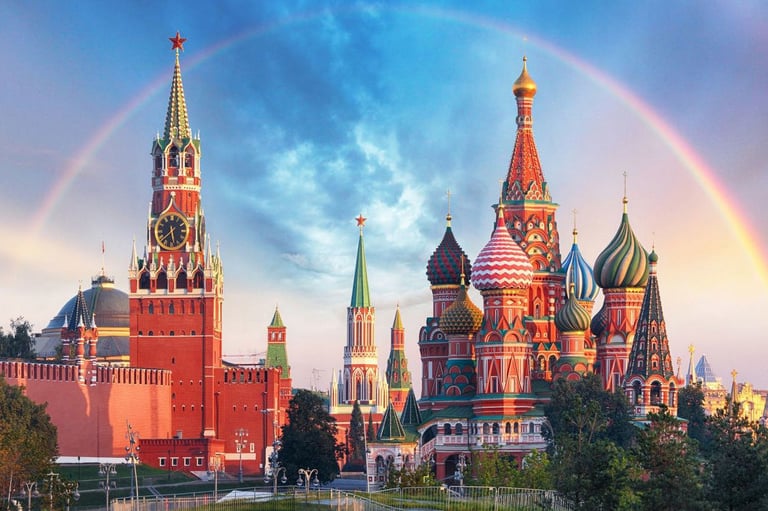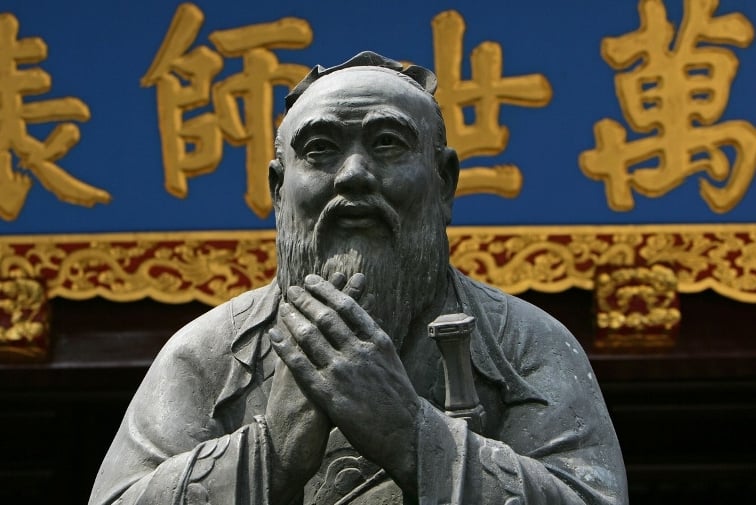Exploring Cultures
Investigating the evolution of Chinese, Russian, and Western cultures to gain insight into the diverse perspectives of thought
The concepts of “culture” and “civilization” are among the vaguest notions and often substitute each other, deriving from a Western worldview that pretends to be universal since globalization. Throughout history, these terms have evolved, encompassing a wide range of meanings and interpretations that vary not only across different cultures but also within specific communities. As we delve into these intricate ideas, we must ask ourselves: Can it serve as a common ground for dialog, or will it conceal critical inconsistency between different social groups and invoke a conflict, potentially perishing humanity’s achievements in the process? This is a reason for careful consideration of variables and constants in human behavior. Moreover, it is essential to recognize that the interplay between individual identity and collective culture shapes societal dynamics, making the understanding of these terms even more complex. Realizing the commonalities and differences between these core values will not only facilitate global cooperation but also enhance mutual respect, understanding, and reduce conflicts, fostering a more harmonious coexistence among diverse peoples and nations.
Kanaev Ilya A.
The Historical Development of Russia’s Traditional Values.
Patria, 2, 93-115.


This study provides a theoretical justification for the necessity of maintaining a system of traditional values for the existence and sustainable development of the state, drawing on data from anthropology, cognitive science, and philosophy. It argues that fundamental human needs can be understood as values of life and honor, which are subsequently shaped within culture, thereby defining the distinct worldview and value system of a given community. By applying these findings and synthesizing them with established historical facts of Russia, the study elucidates the evolutionary nature of the Russian people's collective identity. Russia’s close interaction with both Western and Eastern cultures has enabled it to synthesize a unique value system—one that integrates patriotism and devotion to the homeland with compassion and humanity toward all people. The capacity to retain such diverse moral principles within both individual and collective consciousness has been made possible by the continuous pursuit of new solutions and constructive labor. In turn, this creative capacity facilitates the overcoming of limitations, thereby fostering values of creation and willpower. The clarification of these values and the necessity of their consistent embodiment in individual and societal life represent the study’s most significant theoretical contribution. Its practical application in state planning and education would contribute to the establishment of a stable system for shaping both collective and individual identity while countering the spread of destructive ideologies.
Dryaeva Ella D. Kanaev Ilya A.,
Algorithms and Rituals: A Philosopher’s Perspective on the Digital Transformation of Chinese Education.
Voprosy Filosofii. 2025 - upcoming


This article examines the transformation of the educational subject in the context of artificial intelligence (AI) integration into education systems. The methodological framework draws upon traditional Chinese philosophy – which views education as a process of moral cultivation – complemented by philosophy of technology, digital ethics, and contemporary posthumanist theories. Rather than analyzing AI’s instructional efficacy, the study focuses on ontological and ethical shifts occurring when traditional pedagogy is replaced by algorithmic systems. Case studies from contemporary Chinese practice (Squirrel AI, TAL Education, and Huawei Smart Campus) demonstrate various modalities of technological intervention that challenge Confucian conceptions of the teacher as moral exemplar and education as ritualized personality formation. In this context, digital transformation of educational environments emerges not as neutral but as ontologically significant, demanding reconsideration of how values, rituals, and personal engagement shape human subjectivity. The disappearance of teachers' physical presence and empathic authority raises crucial questions: Can algorithms facilitate moral development? How can education's ethical core be preserved under algorithmic governance? The authors advocate for situating new technologies within traditional cultural ethics, proposing conceptual frameworks of “algorithmic virtue”, “ritualization of technology”, “ethics of proportionality”, and “educational cosmopoetics”. This reconceptualizes education not as knowledge transmission but as human becoming - a practice that must both align with technological progress and address pressing challenges of biological and social evolution.
Kanaev Ilya A.
Conflict or Complementarity? Western and Chinese Perspectives on the Core Values of Civilization


The notion of "civilization," often upheld as a universal benchmark in the era of globalization, carries profound ambiguities in its conceptualization. The Western civilizational paradigm, centered on civis (citizenship), and the Chinese wenming (文明, "harmony under Heaven") reflect fundamentally distinct cultural logics.
Western Civilization (rooted in Latin civis) prioritizes individual agency and mastery over the external environment, fostering analytical thinking and technological innovation. While this has driven modernization, it may also engender alienation between humans and the world.
Chinese Civilization (originating from the Zhou Yi's "all under Heaven is civilized") is grounded in familial ethics, where rituals (li 礼) sustain social harmony (he er butong 和而不同). This creates a hyper-stable societal structure, though it may also entail path-dependent limitations.
Through comparative analysis of philosophical classics, historical evolution, and cognitive anthropology, this study reveals:
The Western paradigm extends individual rationality through natural selection,
While the Chinese model embodies symbiotic wisdom via harmony in diversity.
Rather than being antithetical, these frameworks represent complementary survival strategies. Amid global challenges, recognizing their differences may help transcend the "clash of civilizations" narrative, advancing a shared future for humanity—one that respects civilizational pluralism while exploring collaborative governance grounded in mutual legitimization of values.
Address
Shandong University,
Advanced Institute for Confucian Studies
1801
Contacts
+86-13902409939
Messengers | Phone
